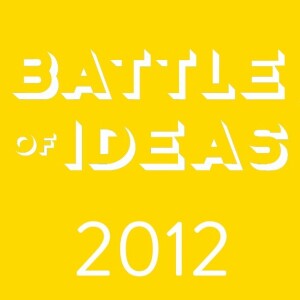
Friday May 03, 2024
What's wrong with equality?
Recorded at the Battle of Ideas festival 2012 on Saturday 20 October at Barbican, London.
ORIGINAL INTRODUCTION
In his State of the Union speech this year, President Obama declared that inequality is ‘the defining issue of our time’. He said everyone should get ‘a fair shot’, do ‘their fair share’ and play by ‘the same set of rules’. Such fairness, such equality, was a matter beyond politics (‘not Democratic values or Republican values, but American values’), something without which the very fabric of society was at risk. In the UK, too, Prime Minister David Cameron has railed against ‘the incredible inequality of the modern world’. Economic debates are dominated by the spectre of dangerous inequalities. From Richard Layard’s economics of happiness, with its focus on relative income and the ‘paradox of prosperity’, to the fashionable endorsement of The Spirit Level, a bestselling book by academics much cited by politicians of all parties, to the Occupy movement, it has become an orthodoxy that unequal societies do worse in education, mental health and social cohesion.
The moral force of demands to lessen economic inequality seems to derive from the historically progressive demands for political equality. Who can object to that call for equal rights, whereby groups oppressed because of their gender, race or sexuality fought for their democratic rights? But does the fairness agenda really stand in the tradition of anti-slavery, civil rights and women’s suffrage? Is demanding regulation of bankers’ pay or calling for a mansion tax of the same order as the fight against Apartheid or the decriminalisation of homosexuality? Or are we in danger of confusing what we mean by equality by conflating the economic with the political?
The origin of the modern idea that ‘All men are created equal’ lies in Thomas Jefferson’s ‘immortal declaration’ in which equality was inalienably linked to liberty as a rebuttal against authoritarian rule. And yet demands for more equality can be used against individual freedom, religious freedom, free enterprise. Equal rights for minority groups may be progressive, but what about contemporary equal opportunity policies, such as quotas, that emphasise equality of outcomes? Talent is not equally distributed: some of us are fast, some bright, some musical. Some are not. That might not be ‘fair’, but there it is: we are not all born the same. Is it fair to discriminate and handicap to level the playing field? Or does such affirmative action come at too high a price in personal freedom? Do we really want economic redistribution to the level that we all have the same? Is the importance of equality more in allowing us to be different or in allowing us to be the same? What has equality come to mean today?
SPEAKERS
Sue Christoforou
policy and research manager, The Equality Trust project, One Society; policy analyst
Thomas Hylland Eriksen
professor of social anthropology, University of Oslo; novelist; author, Ethnicity and Nationalism and Globalization: the key concepts
Joyce McMillan
chair, Hansard Society Working Group in Scotland; judge, 2010 Saltire Scottish Book of the Year Award; theatre critic, Scotsman
Brendan O'Neill
editor, spiked; columnist, Big Issue; contributor, Spectator; author, A Duty to Offend: Selected Essays
Trevor Phillips
former chair, Equality and Human Rights Commission
CHAIR
Claire Fox
director, Academy of Ideas; panellist, BBC Radio 4's Moral Maze; author, I Find That Offensive
Comments (0)
To leave or reply to comments, please download free Podbean or
No Comments
To leave or reply to comments,
please download free Podbean App.